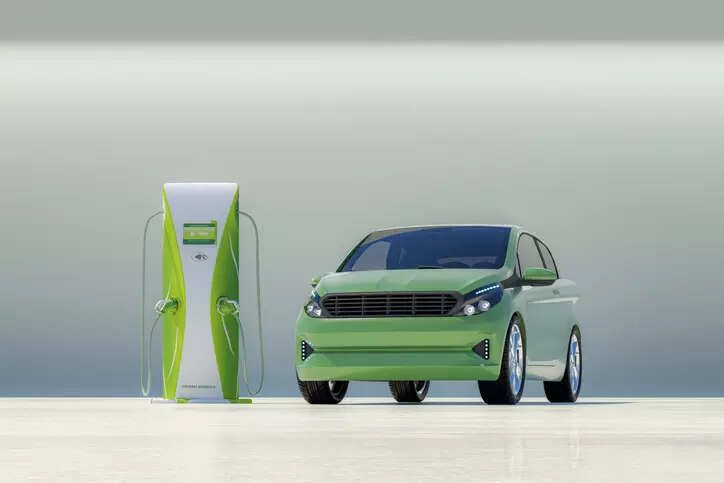
New Delh: People in India still look at green number plate of cars with a lot of awe. But most of the people are in sync with the idea that electric vehicles (EV) are the future of the world. Sooner or later, we all have to adopt it.
Electric vehicles (EVs) are as efficient as petrol or diesel vehicles and sometimes even better.
One area where EVs clearly outperform gasoline (petrol) vehicles is in terms of their environmental impact.
EVs produce zero emissions, making them an attractive choice for those looking to reduce their carbon footprint. This is in contrast to traditional gasoline vehicles, which produce significant amounts of greenhouse gases and other pollutants.
Furthermore, EVs are often powered by renewable energy sources, such as solar or wind power, which make them even more environmentally-friendly, reported NewsonAir.
According to data given by NITI Aayog, the emissions impact of electric vehicles is much lower than petrol or diesel vehicles. From an efficiency perspective, electric vehicles can convert around 60 per cent of the electrical energy from the grid to power the wheels, but petrol or diesel cars can only convert 17-21 per cent of the energy stored in the fuel to the wheels. That is a waste of around 80 per cent.
Another advantage of EVs is their instant torque, which allows them to accelerate quickly and smoothly. This is in contrast to gasoline vehicles, which typically require a complex transmission system to achieve the same level of performance. Additionally, the precise throttle control of EVs allows for more precise handling and control, making them a safer option on the road.
The global electric vehicle (EV) market is developing at a rapid pace.
According to EV volumes, overall electric vehicle reached a global share of 8.3 per cent (including battery electric vehicles [BEVs] and Plug-in hybrid electric vehicles [PHEVs]) in 2021 from 4.2 per cent in 2020 with 6.75 million vehicles on the road.
This is an increase of 108 per cent as of 2020. EVs are gaining attention across the globe as they help reduce emissions and depletion of natural resources.
The Indian EV market is also evolving fast as close to 0.32 million vehicles were sold in 2021, up 168 per cent year-on-year.
Ongoing electric vehicle adoption in India is based on the Paris Agreement to reduce carbon emissions, to improve the air quality in urban areas and reduce oil imports.
One area where gasoline vehicles still hold an advantage over EVs is in terms of quick refueling. It can take several hours to fully charge an EV, while refuelling a gasoline vehicle takes only a few minutes. This can make EVs less practical for long road trips or other situations where access to a charging station may be limited. However, the rise of fast-charging stations is slowly reducing this disadvantage, and many EV owners find that they can easily plan their routes to include charging stops.
From their superior environmental impact to their instant torque and precise handling, EVs are a compelling option for many drivers. As charging infrastructure continues to expand and EV technology continues to improve, it’s likely that we’ll see even more EVs on the road in the years to come.
According to India Brand Equity Foundation, the Indian automobile industry is the fifth largest in the world and is expected to become the third largest by 2030. As per India Energy Storage Alliance (IESA), the Indian EV industry is expected to expand at a CAGR of 36 per cent. As population rises and demand for vehicles grow, dependence on conventional energy resources is not a sustainable option as India imports close to 80 per cent of its crude oil requirements.
NITI Aayog aims to achieve EV sales penetration of 70 per cent for all commercial cars, 30 per cent for private cars, 40 per cent for buses and 80 per cent for two and three-wheelers by 2030. This is in line with the goal to achieve net zero carbon emissions by 2070.
Over the last three years, 0.52 million EVs were registered in India, according to the Ministry of Heavy Industries. EVs recorded robust growth in 2021, supported by the implementation of favourable policies and programmes by the government.